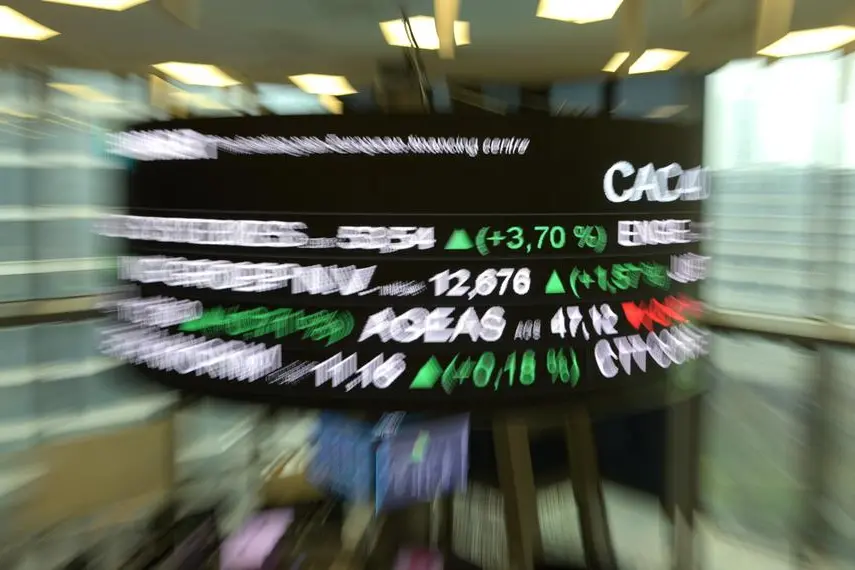PHOTO
Stock markets slid Friday, having made strong gains earlier in the week, while oil prices surged on worries the Israel-Hamas conflict could impact supplies in the crude-rich Middle East.
European gas prices reached the highest levels since February.
Energi Danmark analysts said a recent pipeline sabotage in the Baltic Sea added to "geopolitical uncertainty" in the wake of the Israel-Hamas conflict.
Helsinki believes last weekend's leak in the Finland-Estonia gas pipeline was caused by "external" activity, sparking suspicions of Russian involvement.
Higher energy prices are adding to concerns over elevated inflation after a forecast-topping US consumer-prices report revived fears the Federal Reserve would hike interest rates again before the end of the year.
"With gas prices rising and oil starting to bubble higher again... there is the potential for further inflationary pressure to complicate the decision-making of central banks," noted AJ Bell investment director Russ Mould.
Stock markets had enjoyed a fruitful few days since last week's US jobs report suggested the world's top economy remained resilient but was not too strong to warrant more central bank tightening to tame prices.
However, the mood darkened Thursday on data showing the US consumer prices index rose slightly more than expected in September, highlighting the tough work still to do in the battle against inflation.
"At the moment we appear to be in no-man's land when it comes to the prospect of further rate hikes with a still resilient US economy, and rate policy that is struggling to return inflation to target," said CMC Markets analyst Michael Hewson.
In Asia on Friday, the Hong Kong stock market tumbled more than two percent, dragged by hefty selling in the tech sector, having enjoyed a strong run this week on hopes for more government support for the economy and struggling mainland markets.
There was little reaction to data showing a slight improvement in Chinese exports and imports, while inflation came in flat for September.
Currency traders were keeping a close eye on the yen as the dollar pushed towards 150 after the US inflation reading, with Japanese officials warning they were watching for any extreme moves and primed for intervention.
Analysts said traders were worried about selling the yen too far in case Tokyo did step in to support the unit.
"Close attention is being paid to the 150 level," Yuta Suzuki, of MUFG Bank, said. "Investors probably don't want to buy dollar-yen above 150 primarily because of concerns about intervention."
- Key figures around 1100 GMT -
- London - FTSE 100: DOWN 0.4 percent at 7,613.22 points
- Frankfurt - DAX: DOWN 0.8 percent at 15,298.89
- Paris - CAC 40: DOWN 0.8 percent at 7,047.46
- EURO STOXX 50: DOWN 0.8 percent at 4,164.26
- Tokyo - Nikkei 225: DOWN 0.6 percent at 32,315.99 (close)
- Hong Kong - Hang Seng Index: DOWN 2.3 percent at 17,813.45 (close)
- Shanghai - Composite: DOWN 0.6 percent at 3,088.10 (close)
- New York - Dow: DOWN 0.5 percent at 33,631.14 (close)
- Brent North Sea crude: UP 3.6 percent at $89.13 per barrel
- West Texas Intermediate: UP 3.7 percent at $85.99 per barrel
- Dollar/yen: DOWN at 149.58 yen from 149.79 yen on Thursday
- Euro/dollar: DOWN at $1.0516 from $1.0534
- Pound/dollar: DOWN at $1.2166 from $1.2177
- Euro/pound: DOWN at 86.47 pence from 86.48 pence




















